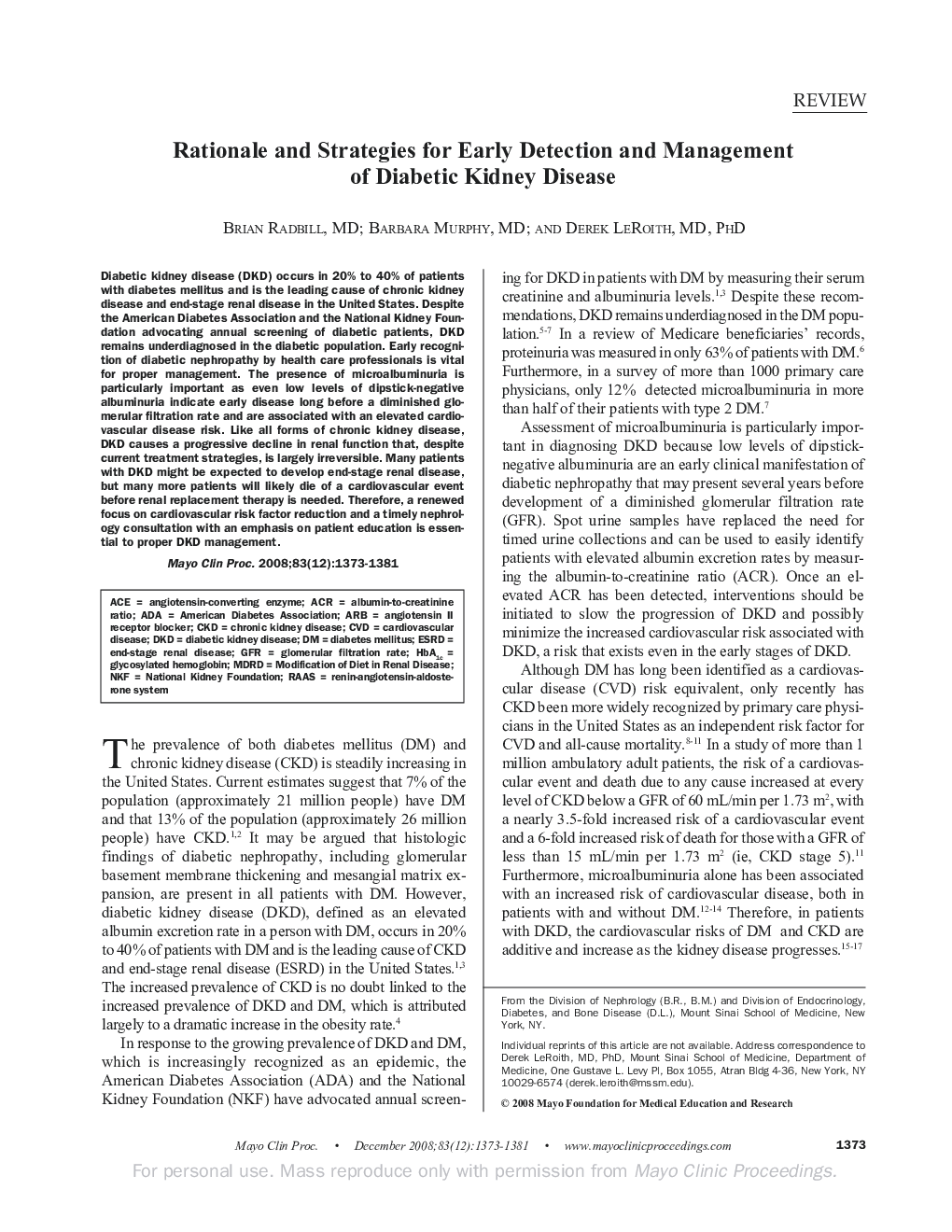| کد مقاله | کد نشریه | سال انتشار | مقاله انگلیسی | نسخه تمام متن |
|---|---|---|---|---|
| 3000419 | 1180330 | 2008 | 9 صفحه PDF | دانلود رایگان |
عنوان انگلیسی مقاله ISI
Rationale and Strategies for Early Detection and Management of Diabetic Kidney Disease
دانلود مقاله + سفارش ترجمه
دانلود مقاله ISI انگلیسی
رایگان برای ایرانیان
کلمات کلیدی
HbA1cDKDNKFMDRDGFRRAASARBACRACEAngiotensin-converting enzyme - آنژیوتانسین تبدیل آنزیمmodification of diet in renal disease - اصلاح رژیم در بیماری کلیویAmerican Diabetes Association - انجمن دیابت آمریکاNational Kidney Foundation - بنیاد ملی کلیهcardiovascular disease - بیماری قلب و عروقیchronic kidney disease - بیماری مزمن کلیویESRD یا end stage renal disease - بیماری کلیوی در مرحله نهایی End-stage renal disease - بیماری کلیوی در مرحله پایانیDiabetic kidney disease - بیماری کلیوی دیابتیDiabetes mellitus - دیابت قندیCVD - رسوب دهی شیمیایی بخار Renin-angiotensin-aldosterone system - سیستم رنین-آنژیوتانسین-آلدوسترونangiotensin II receptor blocker - مسدود کننده گیرنده آنژیوتانسین IICKD - نارسایی مزمن کلیهGlomerular filtration rate - نرخ فیلتراسیون گلومرولیAlbumin-to-creatinine ratio - نسبت آلبومین به کراتینینGlycosylated hemoglobin - هموگلوبین گلیکوزیله شدهADA - وجود دارد
موضوعات مرتبط
علوم پزشکی و سلامت
پزشکی و دندانپزشکی
کاردیولوژی و پزشکی قلب و عروق
پیش نمایش صفحه اول مقاله

چکیده انگلیسی
Diabetic kidney disease (DKD) occurs in 20% to 40% of patients with diabetes mellitus and is the leading cause of chronic kidney disease and end-stage renal disease in the United States. Despite the American Diabetes Association and the National Kidney Foundation advocating annual screening of diabetic patients, DKD remains underdiagnosed in the diabetic population. Early recognition of diabetic nephropathy by health care professionals is vital for proper management. The presence of microalbuminuria is particularly important as even low levels of dipstick-negative albuminuria indicate early disease long before a diminished glomerular filtration rate and are associated with an elevated cardiovascular disease risk. Like all forms of chronic kidney disease, DKD causes a progressive decline in renal function that, despite current treatment strategies, is largely irreversible. Many patients with DKD might be expected to develop end-stage renal disease, but many more patients will likely die of a cardiovascular event before renal replacement therapy is needed. Therefore, a renewed focus on cardiovascular risk factor reduction and a timely nephrology consultation with an emphasis on patient education is essential to proper DKD management.
ناشر
Database: Elsevier - ScienceDirect (ساینس دایرکت)
Journal: Mayo Clinic Proceedings - Volume 83, Issue 12, December 2008, Pages 1373-1381
Journal: Mayo Clinic Proceedings - Volume 83, Issue 12, December 2008, Pages 1373-1381
نویسندگان
Brian MD, Barbara MD, Derek MD, PhD,